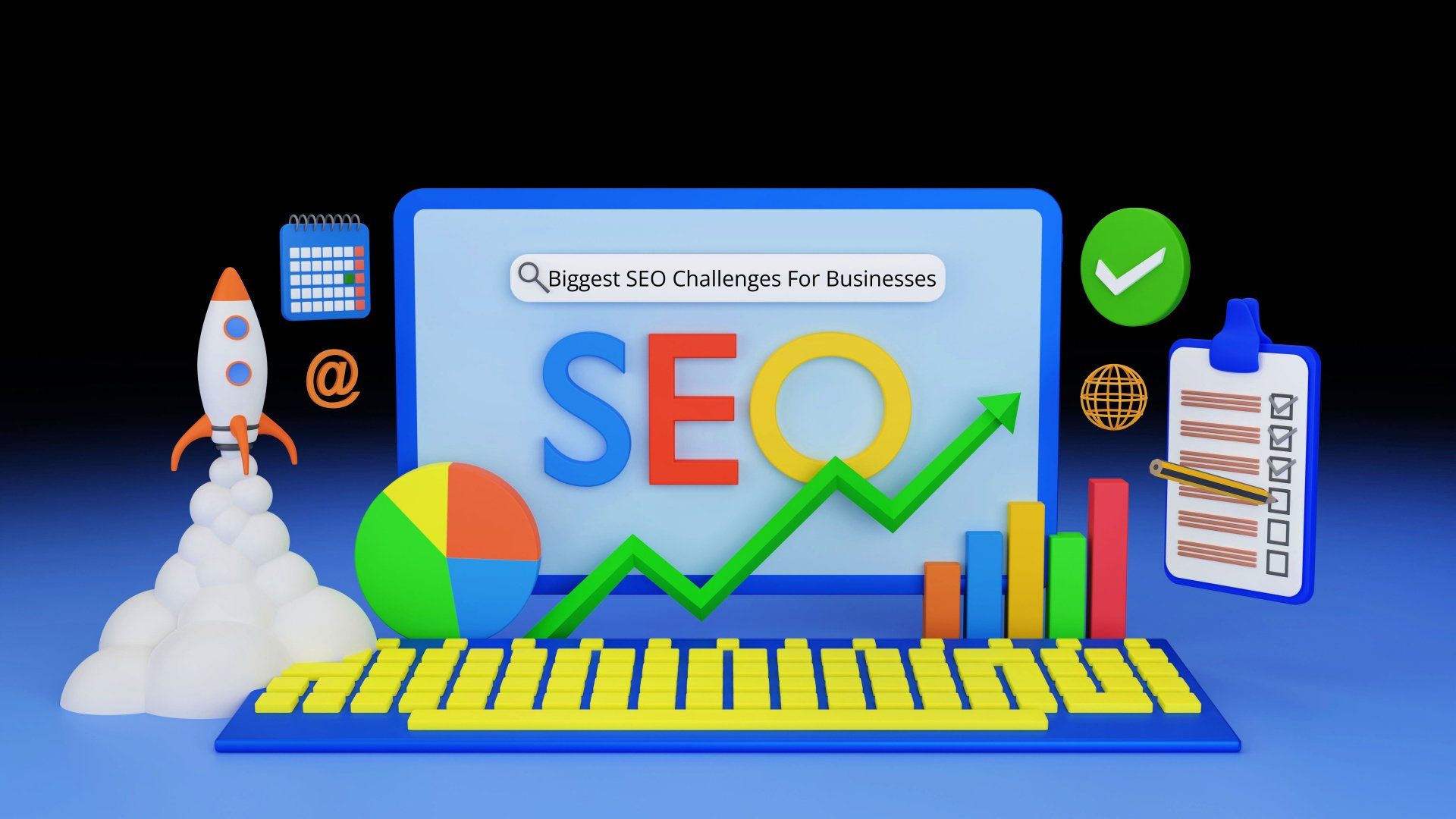Biggest SEO Challenges & Ways To Overcome Them!
Evolving SEO Strategies to Stay Ahead of the Curve

The landscape of SEO is changing rapidly. With new algorithm updates and changes in user behavior, it can be tough to keep up with the latest trends. This blog post will cover the ten toughest challenges to SEO success and how you can overcome them.
- Keeping Up with Google's Algorithm Updates: The first challenge on our list is keeping up with Google's algorithm updates. Google makes hundreds of changes to its algorithms each year, and keeping track of them can be challenging. However, there are a few critical updates that you should be aware of.
• The first is the Page Experience Update, which will roll out in May. This update will place a greater emphasis on factors like page loading speed and mobile-friendliness when determining rankings.
• The second major update is the Core Web Vitals Update, which will also roll out in May. This update will focus on three key metrics: page load time, interactivity, and visual stability.
• Finally, the third update to watch out for is the BERT Update from October, which improves search results by better understanding user intent behind queries.
Keep track of updates here: https://developers.google.com/search/updates/ranking
2. Overcoming the Challenge of Keyword Research: Despite all of the algorithm changes and updates, SEO is still one of the most effective ways to improve your website's visibility and organic search traffic. That said, it's not always easy to stay on top of everything – especially when it feels like Google is constantly changing the rules. Make sure you are constantly researching your keywords and adding them to your site or new pages you create. Great tool here: https://kwfinder.com/
3. Optimizing Your Website For Ranking: Not Having a Mobile-Friendly Website Is death for your online presence. More people search the internet on their phones than on any other device. So if your website isn't mobile-friendly, you'll lose out on many potential customers. Ensure your website is responsive and can be easily viewed on all devices.
4. Targeting the Wrong Keywords: Research your keywords thoroughly before optimizing your website for them. If you target the wrong keywords, you could drive irrelevant traffic to your site, which will do nothing for your business goals.
5. Optimizing for Google Ads: Instead of Organic Search, Google Ads may bring quick results, but they are not sustainable in the long run. Invest more time and effort into SEO so that your website appears higher in organic search results – this is where more than 86% of people click when looking for something online.
6. Not Creating Enough Content: To rank high in search engine results pages, you need to have a lot of high-quality content on your website. It would be best if you aimed to publish at least one blog post per week and other forms of engaging content, such as infographics and videos.
7. Creating Thin Content: Creating lots of content is not enough – it needs to be quality content that provides value to readers if you want it to help with SEO success. There's no point filling up your blog with fluff or rehashing old news – focus on creating original, well-researched articles that offer something new each time.
8. Improper Use of Keywords: If you stuff too many keywords into your content or unnaturally use them, otherwise known as keyword stuffing, Google will penalize you with lower rankings. Use keywords sparingly and only when they fit naturally into the context.
9. Not Promoting Your Content Enough: Once you've published great content, make sure it gets seen by sharing it across social media and other channels. Link back to it from other articles on your site, guest blogs, and elsewhere online. The more places people can find your content, the better it's chance of ranking highly.
10. Having Poor Site Structure: A well-organized website is easier for users and search engines to navigate. Use silos if necessary to group similar topics, and don't forget to write descriptive titles and meta tags for these pages! Plan out the hierarchy of your pages before building your site so that everything is easy to find.
While these challenges may seem daunting, there are many things that SEO professionals can do to overcome them. By staying informed and keeping up with the latest trends, they can stay ahead of the curve and keep their clients' websites visible in a competitive landscape. Additionally, by having realistic expectations and measuring and proving their value, SEO professionals can show their clients that they are worth the investment. Finally, by being flexible and adaptable to algorithm changes, SEO professionals can ensure that their strategies remain effective in an ever-changing landscape.









